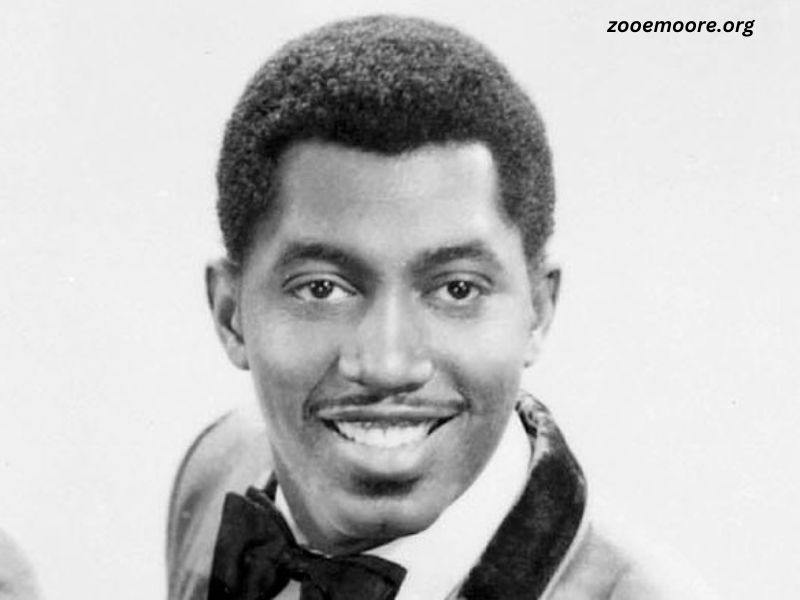Paul Williams is a name that resonates deeply with fans of classic Motown music. As one of the original members of the legendary vocal group The Temptations, Williams contributed significantly to the group’s early success. With his distinctive voice and incredible stage presence, Williams helped shape the sound of The Temptations during the height of their fame in the 1960s and early 1970s. Yet, his story is one marked by both triumph and tragedy, and his legacy is a poignant reminder of the cost of stardom and personal struggles.
Early Life and Musical Beginnings
Paul Williams was born on July 2, 1939, in Birmingham, Alabama, and raised in a religious household. His father, who was a preacher, encouraged Williams to sing in church, which helped him develop his musical talent. He was known for his rich baritone voice, and it wasn’t long before he joined local singing groups in Detroit, Michigan, where he would eventually find his way into The Temptations.
The Temptations, one of Motown’s most iconic and influential groups, were formed in 1960. Williams, along with fellow members Otis Williams, Melvin Franklin, Eddie Kendricks, and Elbridge “Al” Bryant, formed the initial lineup of the group. Despite the numerous changes the group would undergo over the years, Williams remained a core part of the early success of The Temptations.
Rise to Fame with The Temptations
The Temptations, under the guidance of Motown’s founder Berry Gordy, quickly became one of the premier groups of the 1960s. Their blend of smooth vocals, intricate choreography, and compelling performances helped them stand out in an era dominated by the Motown Sound.
As one of the founding members of The Temptations, Paul Williams contributed significantly to the group’s early hits. His deep baritone voice was an essential element of the group’s harmonies, and he often shared lead vocals with Eddie Kendricks, whose falsetto voice became another hallmark of the group’s sound.
Williams’s contributions were most prominent in the group’s early recordings. He took the lead on the 1964 hit “The Way You Do The Things You Do,” which helped catapult The Temptations to national fame. His warm and commanding voice also stood out on other early tracks like “My Girl,” “Since I Lost My Baby,” and “Get Ready.” Each of these songs showcased Williams’s vocal prowess and ability to deliver emotional depth through his voice.
However, it wasn’t just his voice that contributed to the group’s success. Williams, known for his distinctive stage presence, was instrumental in shaping the group’s image. The Temptations’ performances were a combination of vocal harmony, style, and choreography, with Williams often taking center stage in the group’s live performances. His cool demeanor and sharp fashion sense made him a fan favorite.
Struggles with Health and Personal Life
Despite his success with The Temptations, Paul Williams faced significant personal challenges throughout his life. One of the most difficult aspects of his career was his struggle with mental health. As his fame grew, so did the pressures of life on the road, the constant demands of stardom, and his own internal battles. Williams’s mental health began to deteriorate, and it was during this time that he developed a substance abuse problem.
The toll of the demanding lifestyle, along with the pressure of keeping up with the success of The Temptations, affected Williams’s performance and his ability to maintain a stable presence within the group. His struggles with alcohol and depression became more apparent as the years went on, and his relationship with the other Temptations members began to suffer.
His personal battles, however, did not go unnoticed. Fellow Temptations member Otis Williams (no relation) later shared that Paul’s issues began to affect the group’s chemistry and his ability to participate in rehearsals and performances. While Otis Williams and the other members of the group tried to support him, the situation was complicated by Paul’s increasing isolation.
As Paul Williams’s behavior became more erratic, his role in The Temptations diminished. This ultimately led to his departure from the group in 1971, a pivotal moment in the history of the band. His departure marked the end of the classic five-man lineup that had contributed to the group’s early success. The Temptations continued without Williams, but his absence was felt both within the group and among their fans.
Tragic End and Legacy
Unfortunately, Paul Williams’s life would end in tragedy. After his departure from The Temptations, Williams’s mental health issues and substance abuse continued to spiral out of control. On August 17, 1973, at the age of 34, Williams was found dead in his car in Los Angeles. The cause of death was determined to be a self-inflicted gunshot wound, and it was widely believed to be a suicide.
Williams’s death was a devastating blow to both The Temptations and his fans. Despite his struggles, Paul Williams had been a pivotal figure in the success of The Temptations during their most formative years. His passing left an indelible mark on the group, and his contributions were remembered as integral to the group’s enduring legacy.
In the years that followed, The Temptations continued to make music and perform, but Williams was never far from their minds. His fellow bandmates frequently spoke of him with affection and respect, recalling his dedication to the group and his undeniable talent. The success of The Temptations in the post-Williams era was a testament to the groundwork he had helped lay in the early years.
Paul Williams’s Influence on Motown and Music
Paul Williams’s influence on The Temptations cannot be overstated. He was not only a talented singer but also a key part of the group’s identity. His voice, in particular, stood out as one of the defining features of The Temptations’ early sound. His ability to convey emotion through song, particularly on tracks like “The Way You Do The Things You Do” and “My Girl,” cemented his place in Motown history.
Williams was also a key figure in the creation of The Temptations’ dynamic stage performances. The group was known for their synchronized dance moves and polished performances, and Williams was an essential part of that visual and musical aesthetic. His stage presence helped the group become one of the most recognizable acts of the 1960s, and his influence on their choreography and performance style helped define the Motown legacy.
Moreover, Williams’s role in shaping the group’s harmony and vocal arrangements was significant. His baritone voice, often harmonizing with Eddie Kendricks’s falsetto and Melvin Franklin’s deep bass, helped create the signature sound of The Temptations. The group’s harmonies, with Williams’s voice as an integral part, became one of the most admired aspects of their music.
Even though Paul Williams’s time with The Temptations was relatively short, his impact on the group and on the Motown sound continues to be felt today. His voice remains a cherished part of the group’s classic songs, and his contributions to the Motown movement solidified him as one of the genre’s great talents.
Conclusion
Paul Williams’s legacy as a member of The Temptations is one of both brilliance and heartbreak. His incredible vocal ability and stage presence were key to the group’s early success, and his contributions to Motown are still celebrated today. Yet, his story is also one of personal tragedy, marked by mental health struggles, substance abuse, and ultimately, his untimely death. Despite his short life and career, Paul Williams’s impact on The Temptations and on music as a whole remains undeniable. He will always be remembered as an essential part of one of the greatest vocal groups in music history.



